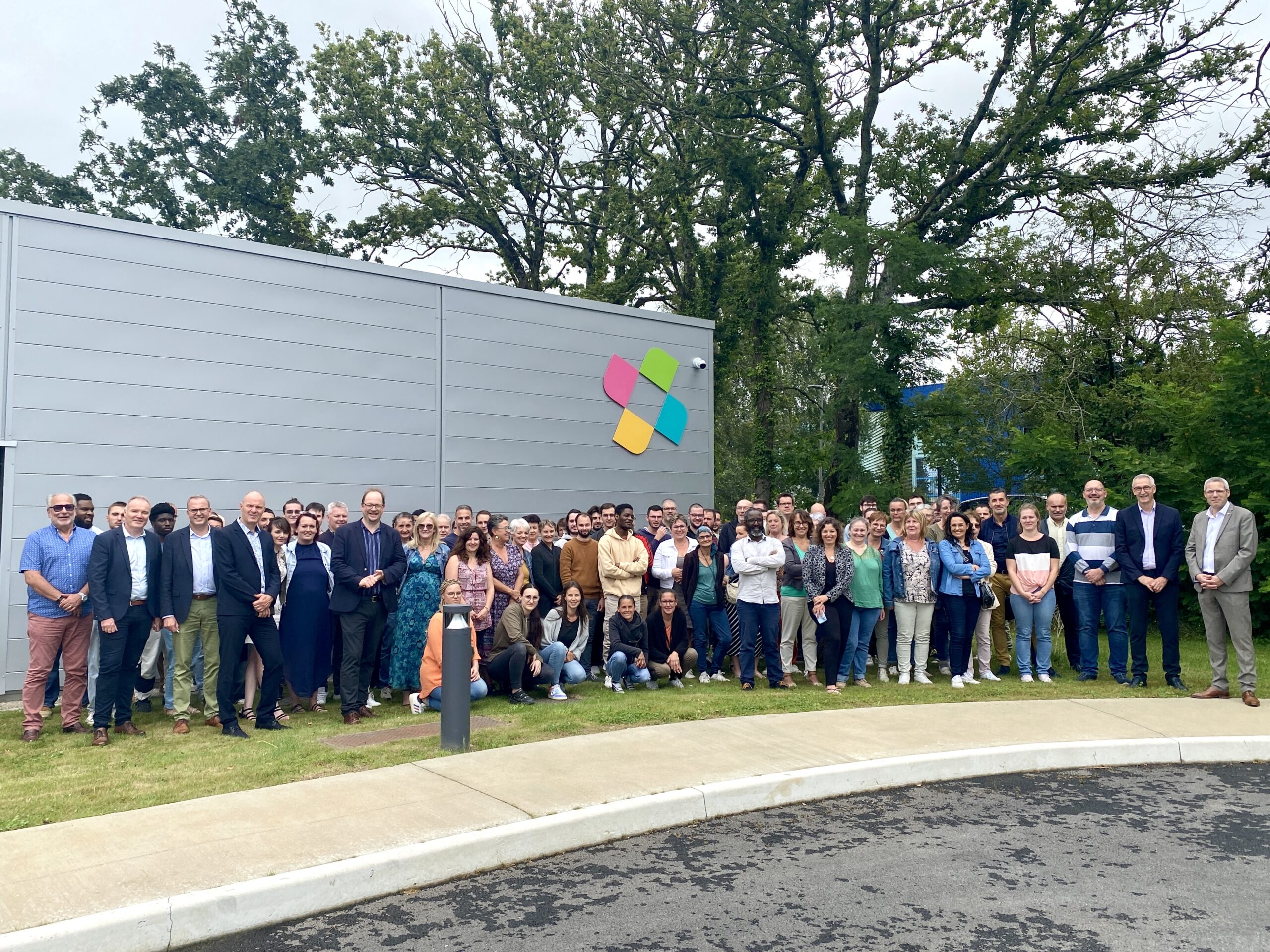After 10 years in existence, We Network has established itself as the heart of the electronics industry in western France. In Verrières-en-Anjou, the electronics and IoT technology resource centre is now aiming to achieve national recognition as an exceptional site for supporting industrial companies in their projects and transformations.
After two terms as chairman of We Network, Vincent Bedouin, chairman of the Lacroix group, handed over the reins this year to another Nantes native, Laurent Stéphan, CEO of 4MOD Technology, which designs remote controls for connected objects. At the same time, the technology resource centre for electronics and IoT, set up ten years ago in Verrières-en-Anjou, just outside Angers, has beefed up its board of directors: While retaining its historic players, such as Lacroix Electronics in Beaupréau-en-Mauges, Eolane in Angers and OEM Development in Saint-Barthélemy-d'Anjou, it has brought in other companies, such as ST Micro, and industrial start-ups like VoltR from Angers and Silentsys from Sarthe. The aim is to strengthen its position as a key player in the relocation and transformation of industry.
1,700 to 2,000 people every year
For Sébastien Rospide, Managing Director of We Network, the progress made since the creation of the Angevin resource centre is significant: ‘In ten years, our technical centre has supported 700 projects and we have trained 2,500 people,’ he recalls. We provide over €1.2 million worth of services each year, including expertise and project management, and organise a whole range of events. The site welcomes between 1,700 and 2,000 people every year.
Industrial start-ups welcomed
As the driving force behind the electronics and IoT sector in the Grand Ouest region, We Network, which has 170 members, focuses on three main activities: It operates shared resources, such as a prototyping unit and a demonstrator for connected products, and has industrial space totalling over 8,000 square metres that can be used by start-ups before they expand elsewhere: ‘We're very keen to develop the use of this space,’ confides Sébastien Rospide, ‘which is ideal for industrial start-ups. They have their own premises and can take advantage of our facilities and the dynamism present within the walls. At the moment, we're hosting VoltR, for example, which is working on battery reconditioning. We've filled these spaces even more this year. Two of our industrial halls are partly occupied and demand is growing. We Network's aim is to enable these industrial start-ups to develop sufficiently on site before moving on to their own premises.
Building a national reputation
With annual growth of 20% and 70 projects supported each year, the proportion of services provided for businesses is constantly increasing at We Network. The technical centre can help companies to develop their projects, while also benefiting from the pooling of resources and the possible support of the vital forces present on the site, whether design offices or start-ups. We have more and more customers, but we still want to raise the profile of our offer,’ adds Sébastien Rospide. We have a role to play for companies in the electronics sector and, more generally, for industry as a whole. To do this, We Network wants to work on raising its profile and continuing to structure the electronics industry in the Grand Ouest region.
Spreading the word and raising awareness are among the objectives set for the next ten years: ‘We are not sufficiently identified in France and Europe,’ adds Sébastien Rospide, ‘and we can take things to a higher level. ’
Attracting people to the electronics industry
As part of its drive to strengthen the electronics industry in the West of France, We Network also wants to make the jobs more attractive. Industry in general suffers from a lack of attractiveness, and electronics is no exception,’ notes Sébastien Rospide. We want to bring together all the schools to work on training content. For our part, we want to develop training courses for trainers. The aim is to arouse the interest of young people in the various electronics-related professions, while also taking into account the issue of gender diversity. Young women continue to shun technical subjects in general.

